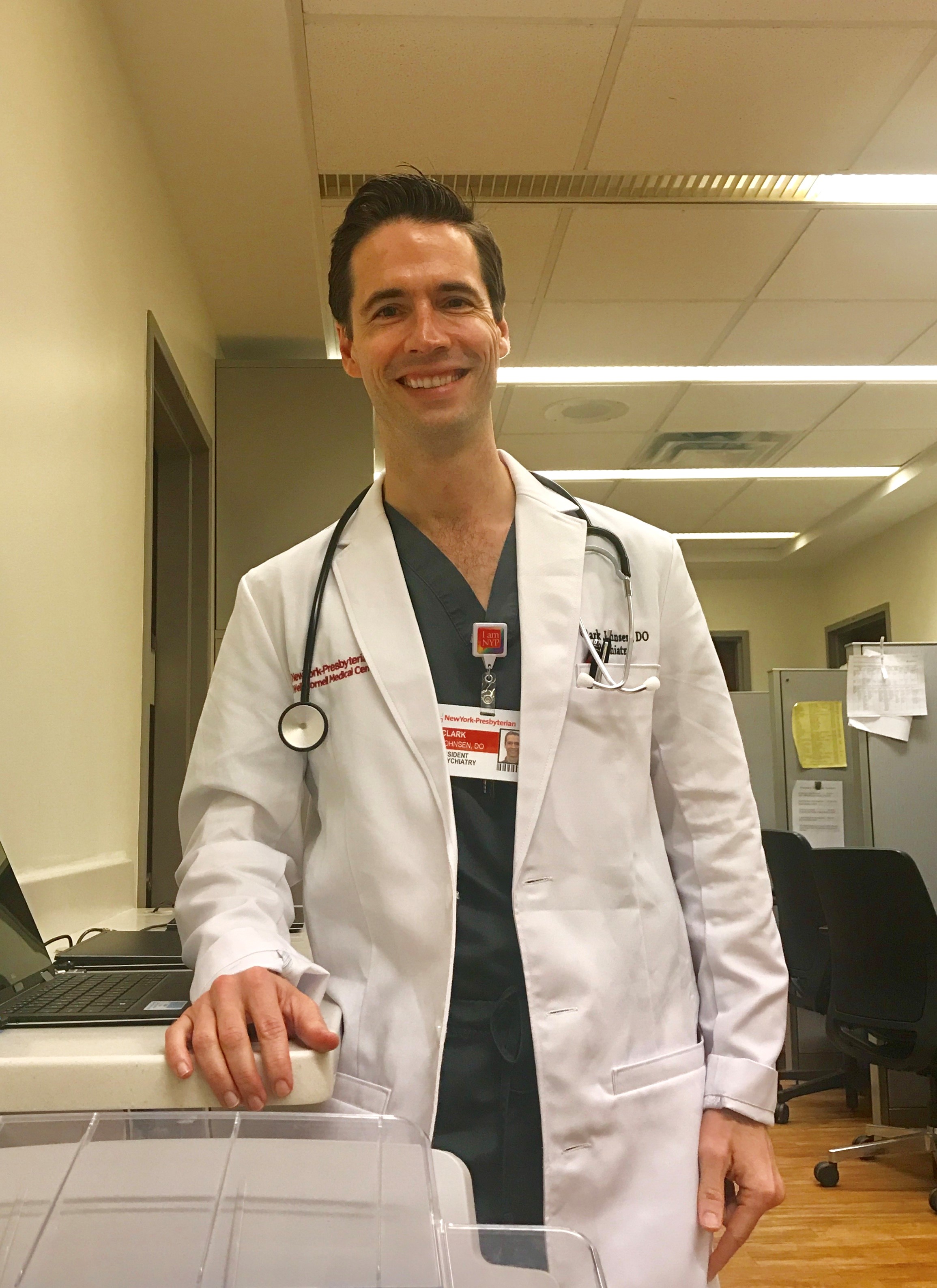From Broadway Actor to Physician: Testing the Limits of Determination and Inner Strength
Engage in hopes and dreams and then seize the opportunities

Clark Johnsen, TouroCOM Harlem Class of 2018, was chosen by the faculty and students to be the student speaker at the school’s recent commencement ceremonies. Before med school, he was leading the star-studded life of a Broadway actor, working in the ensemble of the award-winning musical The Book of Mormon. Now, after four years of intensive study and rotations in medicine, he will be starting a residency in psychiatry at New York-Presbyterian Weill Cornell Medical Center.
Back in 2014, how did you come to make the transition from acting to medicine?
I loved my career in acting. As a Broadway performer, I had the opportunity to travel the world and meet and work with some of the brightest and most creative individuals in the New York Broadway community. But at a certain point, I found myself craving a path that would allow me to participate more actively and directly in the fabric of the human experience. Changing careers at any age is a challenging endeavor, often fraught with fears of failure, inadequacy and self-doubt. Beginning medical training at age 37, I certainly was not immune to those fears, but the idea of doing something new, something that would test the limits of my determination and inner strength drove me forward. And joining a profession where I would have the opportunity to learn to care for my fellow human beings drove me even more. As I took each step toward my new life as a doctor, I found that doors opened. I had to work very hard, but I also was moved to find out how many people will selflessly help and support you when you are attempting doing something noble and difficult. I feel so grateful that I took that initial leap of faith: admitting to myself that I needed to grow and change, and then mustering up the courage to actually to it.
What impact has your education at TouroCOM had on you?
More than anything I’m grateful to Touro for giving me the chance to become a physician. My interviewers saw something in me and said YES, we think this applicant can do this. I found the Osteopathic tradition to be more open to considering non-traditional applicants like myself, and that made all the difference for me. Without that mindset going in, I wouldn’t have even gotten through the door. I’m proud to have trained at a place that valued my distinctive past and saw my unique experiences as an asset. Beyond that, I loved the flexibility of the flipped classroom at Touro. Being able to watch lectures at my own pace, pause and seek additional information without missing anything truly allowed me to customize my medical education and play to my strengths. It also encouraged me to develop a sense of personal responsibility and ownership over my education. I learned how I personally learn best at Touro, and that is something that I will take with me throughout my residency and career.
Why did you choose psychiatry?
I was in a state of total ambivalence throughout most of my 3rd year clerkships. I loved almost everything I learned in each and every rotation. Maybe it’s the actor in me, but I could honestly see myself doing almost anything in medicine and embracing the up and downside of each specialty.
At the end of 3rd year, I finally got to my psychiatry clerkship. On my first day, the attending at the inpatient unit where I was placed leaned forward and delved into her patients with such genuine curiosity - I found myself enthralled by her interactions with them and how they responded to her. She was reaching past the patients symptoms to something deeper: the real story of the human being in front of her and how that human being had come to be here in that room with us today.
In theater we tell stories: the good, the bad, the ugly and everything in between. On that day I realized that psychiatry is about the stories of human beings and how their brains and the world around them has shaped them. I was hooked. I saw that I could genuinely employ my own natural curiosities about the human condition with my patients, and I felt confident that I could help create a safe space for them to share their stories in the hopes that together we could find a way to improve their lives if possible.
At this point, what do you see as your long-term goal for the future?
If I’ve learned anything through my experiences onstage and off, it is that our efforts are Best employed not in making plans for the future and stick with them come what may, but rather in engaging in hopes and dreams about what could be and then seizing the corresponding opportunities as they come into our field of view. So that means I don’t know exactly where I want to take my career at this moment. I want to help people tell their stories, I know that. In the course of my training I want to become a better clinician but also a better human being myself, I know that. How and where and with whom I work is so much less important to me than following the threads that I discover along the way and allowing life to surprise, challenge and support me in the process. I feel optimistic as I embrace the unknown and dive headfirst into the next stage of my journey.

